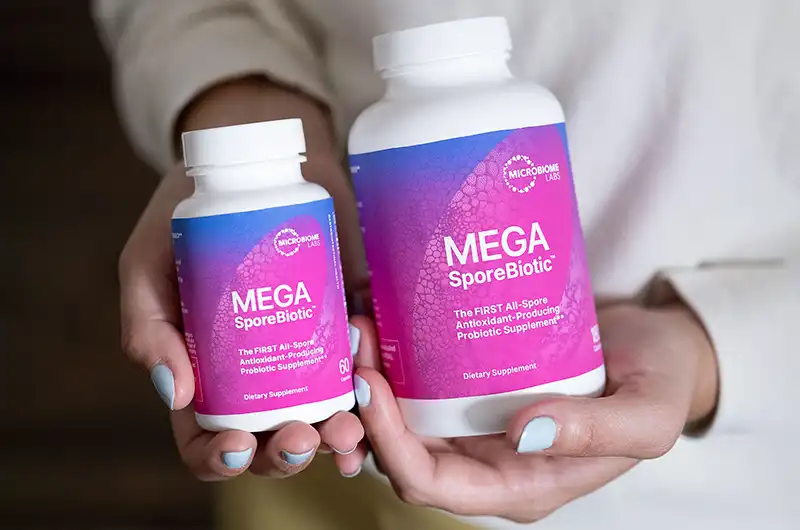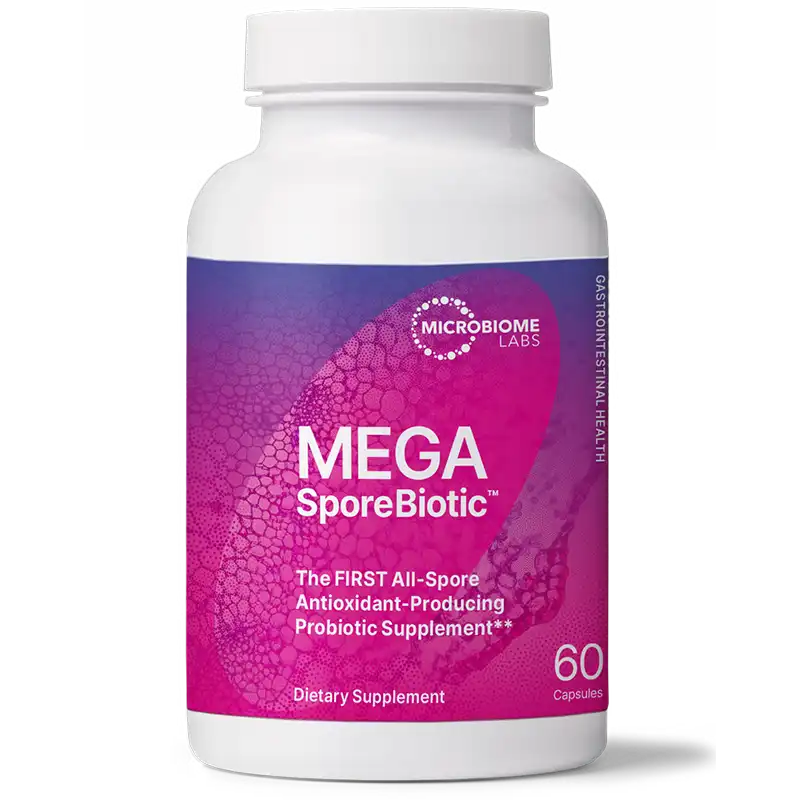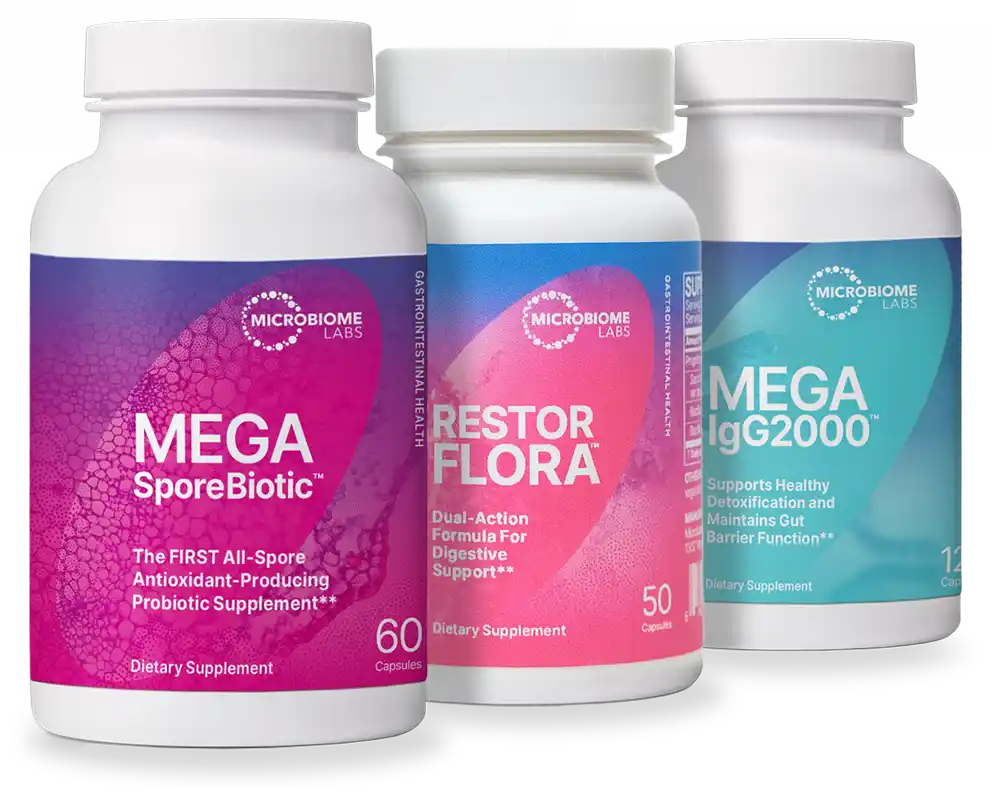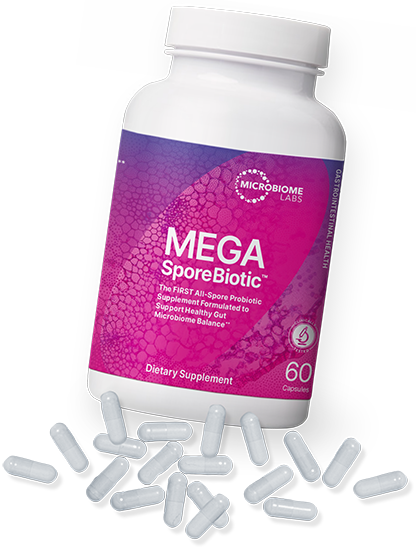Learn More About MegaSporeBiotic
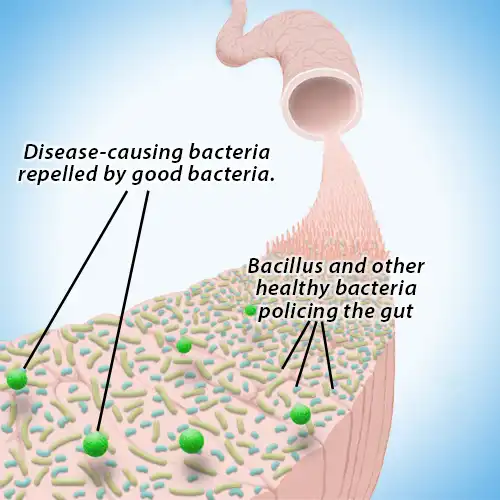
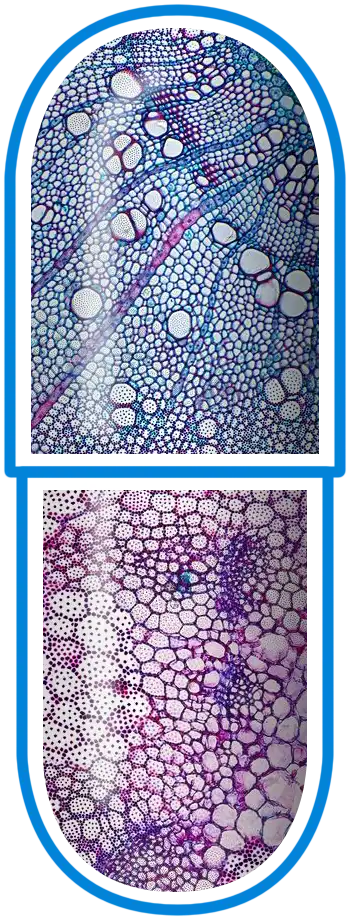
Bacillus subtilis HU58
Producing more than 12 effective, natural antibiotic substances, HU58 is highly important for immune development, as the gut contains 70% of your immune system.
Bacillus indicus HU36
Provides potent immune support, producing carotenoids, astaxanthin, beta carotene, lycopene, lutein, quinols and various vitamins, all of which can help maintain healthy antioxidant levels.
Bacillus clausii SC-109
The most commonly used probiotic drug species worldwide, B. clausii provides potent immune support and it resists being killed by antibiotic drugs during antibiotic treatment.
Bacillus coagulans SC-208
Has been extensively studied with a long history of safe and effective use. Many studies have tested its efficacy on supporting the gut microbiome, showing it can produce lactic acid and support immune function.
Bacillus licheniformis SL-307
Can produce natural antibiotic substances and improve protein digestion via production of protease enzymes. These spores even have a capacity to produce a broad spectrum of highly bioavailable B-vitamins, including folic acid (B9).
Bacillus References: 1 Stein T. Bacillus subtilis antibiotics: structures, syntheses and specific functions. Molecular Microbiology. 2005;56(4):845-857. 2 Khaneja R, et al. Carotenoids found in Bacillus. J of App Microbiol. 2010;108:1889-1902. 3 Dang, H.T., Tran, D.M., Phung, T.T.B. et al. Promising clinical and immunological efficacy of Bacillus clausii spore probiotics for supportive treatment of persistent diarrhea in children. Sci Rep 14, 6422 (2024). https://doi.org/10.1038/s41598-024-56627-9. 4 McFarlin, B.K., Tanner, E.A., Hill, D.W. et al. Prebiotic/probiotic supplementation resulted in reduced visceral fat and mRNA expression associated with adipose tissue inflammation, systemic inflammation, and chronic disease risk. Genes Nutr 17, 15 (2022). https://doi.org/10.1186/s12263-022-00718-7. 5 Shleeva MO, Kondratieva DA, Kaprelyants AS. Bacillus licheniformis: A Producer of Antimicrobial Substances, including Antimycobacterials, Which Are Feasible for Medical Applications. Pharmaceutics. 2023; 15(7):1893. https://doi.org/10.3390/pharmaceutics15071893
- Improve and repair leaky gut2 and significantly reduce endotoxemia in just 30 days
- Provide targeted C. difficile support, protect gut health during C. diff. infections (see study below)
- Produce natural antibiotics to help control intestinal bacterial overgrowth
- Reduce triglyceride levels (cholesterol)
- Protect the liver (equal to milk thistle)
- Reduce symptoms of IBS, ulcerative colitis and C. diff. infections
- Enhance the immune system and reduce side effects of antibiotic drugs
- Recondition and improve gut microbiome diversity and increase beneficial keystone strains including Akkermansia
- Aids in digestion and improve regularity
- Reduce intestinal and systemic inflammation induced from leaky gut2
- Detoxify the intestinal tract
- Heal damaged intestines by reducing intestinal inflammation and colitis
- Produce more lactic acid than conventional probiotics, for enhanced immune system mobilization
- Produce key nutrients: antioxidants (via HU36™), B-vitamins, Vitamin K2, Nattokinase, and CoQ10
- Provide immune modulation for the prevention and treatment of infections, allergies and asthma

- B. coagulans therapy has shown to improve C. difficile colitis symptoms, reduce colon inflammation, provide better stool consistency and improve C. diff. outcomes3 as well as reduce recurring C. diff. after vancomycin treatment4.
- Bacillus clausii makes the antimicrobial compound clausin that directly inhibits C. difficile and other Gram-positive bacteria5.
- Bacillus clausii creates an enzyme that helps break apart C. difficile toxins, resulting in a strong protective effect against intestinal damage6.
- Bacillus subtilis HU58 produces over 12 targeted antimicrobial substances. B. subtilis effectively targets harmful gut bacteria, making it a potent and effective tool to rebalance gut flora.
- Bacillus subtilis enhances the immune system in elderly subjects as indicated by increased immunoglobulin A (IgA) levels7. IgA fights off invading organisms and is your body’s first line of defense.
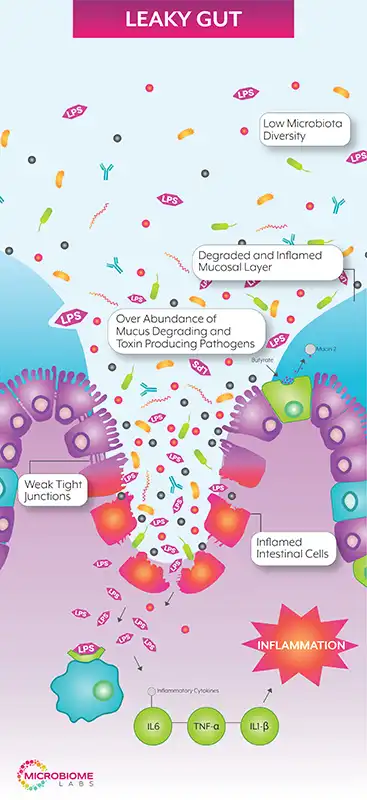
- Inflammatory bowel disease (IBD)
- Autoimmunity
- Obesity
- Type 2 diabetes
- Heart disease
- Cognitive decline
- Immune dysfunctions and even conditions like Parkinson’s disease.
- Just 30 days of taking MegaSporeBiotic significantly reduced the endotoxic “leaky gut” response.
- Just 30 days of taking MegaSporeBiotic effectively fixed their gut lining, favorably altered the immunological response to food, significantly decreased both digestive and systemic inflammation, and in doing so, reduced a major hallmark of chronic degenerative disease.
- MegaSporeBiotic was able to restore some communication between the gut and the brain.
- With 30 days of MegaSporeBiotic, the microbiome was changed from a non-protective confirmation to a protective confirmation, blocking the influx of highly toxic LPS (bacterial endotoxins) into the bloodstream after a meal.
- 30 days of MegaSporeBiotic therapy also saw trends towards better insulin responses to the challenge meal, indicating that MegaSporeBiotic likely conducts a favorable modulation of the endocrine response to food.
- Systemic, chronic immune activation from leaky gut is believed to be the driving force behind autoimmunity and IBD. Those using MegaSporeBiotic saw a significant reduction in chronic immune activation.
- This is the first time that a probiotic has been shown to significantly reduce intestinal inflammation and activate the immune system to improve leaky gut symptoms in human subjects.
- Autoimmune Disorders
- Leaky Gut Syndrome, Seasonal Allergies, Food Allergies and Food Sensitivities
- Irritable Bowel Syndrome (IBS), Irritable Bowel Disease (IBD), Chron’s Disease and Ulcerative Colitis
- Candida, Clostridium difficile, Helicobacter pylori, Parasites and Gut Overgrowths
- Small Intestinal Bacterial Overgrowth (SIBO), Small Intestinal Fungal Overgrowth (SIFO)
- Metabolic Syndrome
- Skin Conditions: Psoriasis, Eczema, Acne
Experience the Benefits of MegaSporeBiotic
References
- Commissioned gastric model study by Silliker Food Science Center – Crete, IL
- Oral spore-based probiotic supplementation was associated with reduced incidence of post-prandial dietary endotoxin, triglycerides, and disease risk biomarkers, Brian K McFarlin, Andrea L Henning, Erin M Bowman, Melody A Gary, Kimberly M Carbajal; World J Gastrointest Pathophysiol 2017 August 15; 8(3): 117-126
- Bacillus Coagulans GBI-30 (BC30) improves indices of Clostridium difficile-Induced colitis in mice. Fitzpatrick L, Small J, Greene W, Karpa K, Keller D. Gut Pathog. 2011; 3: 16.
- Bacillus coagulans GBI-30, 6086 limits the recurrence of Clostridium difficile-Induced colitis following vancomycin withdrawal in mice. Fitzpatrick L, Small J, Greene W, Karpa K, Farmer S, Keller D. Gut Pathog. 2012; 4: 13.
- Probiotics for Prevention of Clostridium difficile Infection. Mills J, Rao K, Young V. Curr Opin Gastroenterol. 2018 Jan; 34(1): 3–10.
- Secreted Compounds of the Probiotic Bacillus clausii Strain O/C Inhibit the Cytotoxic Effects Induced by Clostridium difficile and Bacillus cereus Toxins. Ripert G. et al. Antimicrob Agents Chemother. 2016 Jun; 60(6): 3445–3454.
- Probiotic strain Bacillus subtilis CU1 stimulates immune system of elderly during common infectious disease period: a randomized, double-blind placebo-controlled study. Lefevre M, Racedo SM, Ripert G, et al. Immun Aging. 2015;12:24
- A Spore-Forming Probiotic Supplement Improves the Intestinal Immune Response and Protects the Intestinal Health During Recurrent Clostridioides difficile Colonization in Mice. Fatemeh Ramezani Kapourchali, Bryan Glueck, Yingchun Han. JPEN J Parenter Enteral Nutr. 2020 Nov;44(8):1428-1438. https://pubmed.ncbi.nlm.nih.gov/32495964/

